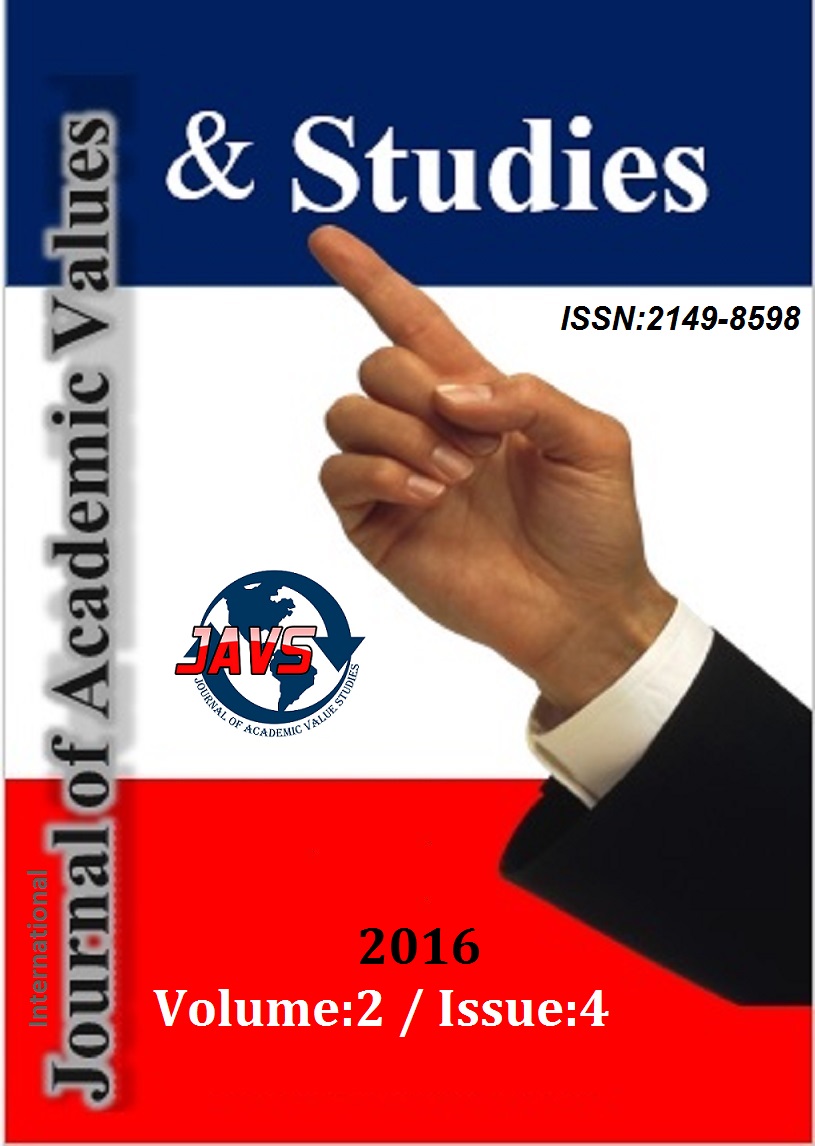Author :
Abstract
Finansal krizler, ülke ekonomilerini çöküşe sürükleyen; üretim, büyüme, istihdam, döviz kuru, faiz ve enflasyon gibi makroekonomik göstergelerde şiddetli dalgalanmalara yol açan, netice olarak çok köklü sosyal ve siyasal değişikliklere sebep olan katastrofik olaylardır. Rusya'da 1998 yılında bir döviz krizi yaşanmıştır ve bu krize benzer döviz krizlerinin, genellikle büyük cari açıklar ve düşük döviz rezervleri gibi çeşitli ekonomik koşullardan kaynaklandığı düşünülmektedir. Bu türden krizler, bazen yakın coğrafyadaki benzer krizler tarafından tetikleniyor gibi görünseler de, esasen bu krizlerin yayılması tüm komşu ekonomileri etkilememekte, yalnızca krize karşı savunmasız olanlarda kriz oluşmasına sebep olmaktadır. Bu çalışmada, Rusya ekonomisinin 1998 yılında bir döviz krizine karşı nasıl savunmasız hale geldiği anlatılmaya çalışılmış, kriz öncesi ülke ekonomisinin içinde bulunduğu duruma ve krizin nedenlerine değinilmiştir. Daha sonra, kriz sırasında yaşanan gelişmeler kronolojik olarak sıralanmış, bunlara paralel alınan önlemler betimlenmiş, bu süreçte ülke makroekonomik verilerinde ve finansal piyasalarda yaşanan değişimler irdelenmiştir. Son olarak, krizin etkileri üzerinde durulmuş, kriz sonrasında yaşanan gelişmeler ve sonuçları aktarılmıştır.
Keywords
Abstract
Financial crises are catastrophic events that collapse economies while causing severe fluctuations in macroeconomic indicators such as production, growth, employment, exchange rate, interest and inflation, ultimately giving rise to very radical social and political changes. Russia went through a currency crisis in 1998 and currency crises similar to this crisis are generally thought to be caused by various economic conditions such as large current account deficits and low foreign exchange reserves. Although such crises sometimes seem to be triggered by similar crises in the nearby countries, the spread of these crises does not affect all neighboring economies, but causes crises only in those who are vulnerable to the crisis. This study aims to provide explanation on how the Russian economy became vulnerable to a currency crisis in 1998, and the situation of the country's economy before the crisis. Then, the events during the crisis were listed chronologically, the measures taken in parallel with these were described, and the changes in the country's macroeconomic data and financial markets were examined. Finally, the effects of the crisis are emphasized and consequences of the crisis are discussed.
Keywords
- Aghion, P., Bacchetta, P., & Banerjee, A. (2000). A simple model of monetary policy and currency crises. European Economic Review, 44(4–6), 728–738. https://doi.org/10.1016/S0014-2921(99)00053-7
- Ahrend, R. (2011). Foreign Direct Investment Into Russia - Pain Without Gain? A Survey of Foreign Direct Investors. SSRN Electronic Journal, 26–33. https://doi.org/10.2139/ssrn.620122
- Black, B., Kraakman, R., & Tarassova, A. (2000). Russian Privatization and Corporate Governance: What Went Wrong? Stanford Law Review, 52(6), 1731. https://doi.org/10.2307/1229501
- Bogatyreva, M. V., Leskinen, M. I., & Kolmakov, M. A. (2021). The domestic real estate market during financial crises. IOP Conference Series: Earth and Environmental Science, 751(1). https://doi.org/10.1088/17551315/751/1/012134
- Chiodo, A. J., & Owyang, M. T. (2002). A Case Study of a Currency Crisis: The Russian Default of 1998. Review, 84(6), 7– 18. https://doi.org/10.20955/r.84.7-18
- Desai, P. (2013). And Exchange-Rate, Why Did the Ruble Collapse in August 1998 ? The American Economic Review, 90(2), 48–52.
- Fischer, S. (1998). The Russian Economy at the Start of 1998--Stanley Fischer. International Monetary Fund, 1. https://www.imf.org/en/News/Articles/2015/09/28/04/53/sp010998
- Flood, R. P., & Jeanne, O. (2005). An interest rate defense of a fixed exchange rate? Journal of International Economics, 66(2), 471–484. https://doi.org/10.1016/j.jinteco.2004.09.001
- Grouiez, P., Vercueil, J., & Volkov, D. D. (2021). Beyond oil: the international integration of the Russian economy between macroeconomic constraints and sectoral dynamics. Post-Communist Economies, 33(6), 770–794. https://doi.org/10.1080/14631377.2020.1867462
- Gül, L., Doğan, N., & Berument, H. (2021). Petrol Fiyatları, Döviz Kuru Rejimi ve Rusya Ekonomisi. İstanbul Gelişim Üniversitesi Sosyal Bilimler Dergisi, 8(1), 167–180. https://doi.org/10.17336/igusbd.697463
- Havrylyshyn, O., & Wolf, T. (1998). Growth in Transition Countries, 1990–98: The Main Lessons.
- Himounet, N., Sorbonne, U., Nord, P., & Himounet, N. (2021). Infer Working Paper Series, Searching for the Nature of Uncertainty : Macroeconomic vs Financial 5.
- Jirasakuldech, B., & Emekter, R. (2021). Empirical Analysis of Investors’ Herding Behaviours during the Market Structural Changes and Crisis Events: Evidence from Thailand. Global Economic Review, 50(2), 139–168. https://doi.org/10.1080/1226508X.2020.1821746
- Kharas, H., Pinto, B., & Ulatov, S. (2001). An analysis of Russia’s 1998 meltdown: Fundamentals and market signals. Brookings Papers on Economic Activity, 68(1), 1–68. https://doi.org/10.1353/eca.2001.0012
- Krugman, P. (2008). A Model of Balance-of-Payments Crises. Journal of Money , Credit and Banking , Vol . 11 , No . 3 ( Aug ., 1979 ), pp . 311-325.
- Malleret, T., Orlova, N., & Romanov, V. (1999). What Loaded and Triggered the Russian Crisis? Post-Soviet Affairs, 15(2), 107–129. https://doi.org/10.1080/1060586X.1999.10641466
- Odling-Smee, J. (2006). The IMF and Russia in the 1990s. IMF Staff Papers, 53(1), 151–194. https://doi.org/10.5089/9781451857344.001
- Popov, V. (2000). Lessons of the Currency Crisis in Russia and in Other Countries. Problems of Economic Transition, 43(1), 45–73. https://doi.org/10.2753/pet1061-1991430145
- Shakhnoza, E. S. (2021). History of World Economic Crises and Their Impact on The Economies of Countries. Journal of Analysis and Interventions, 2(2), 33–37.
- Yıldırım-Şahin, E. (2021). Rusya İçin Gazprom’un Yerinin ve Öneminin Ekonomi-Politiği. Fiscaoeconomia, 5(2), 470–491. https://doi.org/10.25295/fsecon.920029
- Zudina, A. (2021). What makes youth become NEET? Evidence from Russia. Journal of Youth Studies, 0(0), 1–14. https://doi.org/10.1080/13676261.2021.1923673
